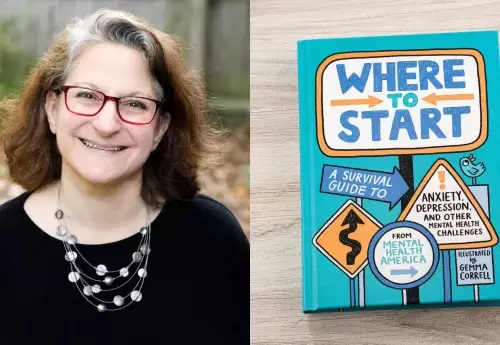
Content warning: Eating disorders, anorexia. If you think you may be struggling with an eating disorder and want to check your symptoms, take the eating disorder screen.
National Eating Disorders Awareness (NEDA) Week plays a crucial role in raising awareness about disordered eating. This year from Feb. 27-March 5th, individuals across the country will gather together to C.A.R.E: Continue the conversation, act early, strengthen recovery, and end the cycle. While national initiatives like NEDA Week are essential, the impact of local organizing efforts must not be underestimated.
Why NEDA Week is Important (to Me)
First, as someone who is in sturdy recovery from anorexia, National Eating Disorders Awareness Week holds a deeply personal significance. The week isn't just about statistics or public awareness campaigns – it's also a time when we come together to break the silence, debunk stereotypes, and let those who are struggling know that they are not alone.
Sharing my story contributes to a collective narrative that empowers others to seek support. By fostering open conversations, we can break down the pervasive stigma around eating disorders. NEDA Week is an optimistic reminder that recovery is possible for everyone.
Impact of Local Government Organizing
When local leaders publicly acknowledge the struggles faced by individuals like me and the 9% of the U.S. population who will have an eating disorder in their lifetime, it sends a powerful message of validation and support. A local government issuing a pProclamation, for example,s can also play a crucial role in allocating local resources for education, treatment, and supportive programming.
Knowing those in your community are ready to champion the cause of eating disorder awareness and strengthen support systems for survivors offers hope to those with an eating disorder and their loved ones.
How to Encourage Local Leaders to Take Action
Raise Awareness: Start by educating your local leaders about the impact of eating disorders. Provide them with statistics, personal stories, and information about NEDA Week. The more informed they are, the more likely they will be to take action.
Engage with Local Representatives: Attend town hall meetings, write letters, and engage with your local representatives to highlight the importance of recognizing NEDA Week. You can also request that they issue a proclamation to officially honor NEDA Week in your hometown. Make it easier for them by sharing sample proclamation text.
Mobilize your Community: Organize events, workshops, or panel discussions during NEDA Week. A visible and active community presence can capture the attention of local leaders and demonstrate the need for official recognition and support. Local events also provide a platform for survivors to share their stories and allow others to learn, empathize, and actively support those affected. Places like libraries, schools and colleges, and community centers may offer free or low-cost venue space, share the event on social media and with local media outlets.
No one has to face this battle alone. When we come together on a local level, we not only raise awareness of eating disorders but also send a powerful message that recovery is possible. NEDA Week is a pivotal moment to advocate for change together.
Aimee Resnick is a member of the 2023 Mental Health America Youth Policy Accelerator and a founder of the Colorado Alliance for Size Equity.




